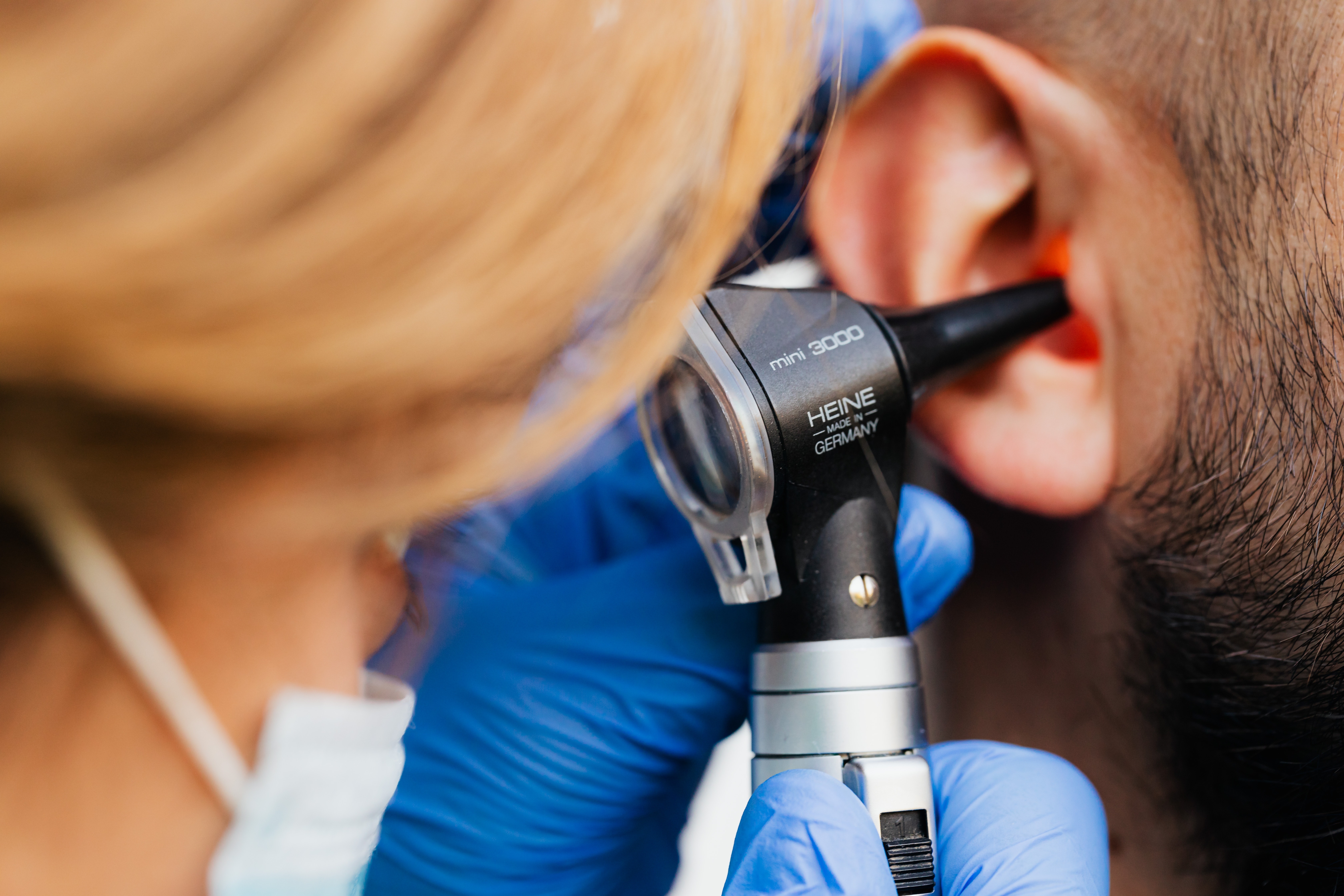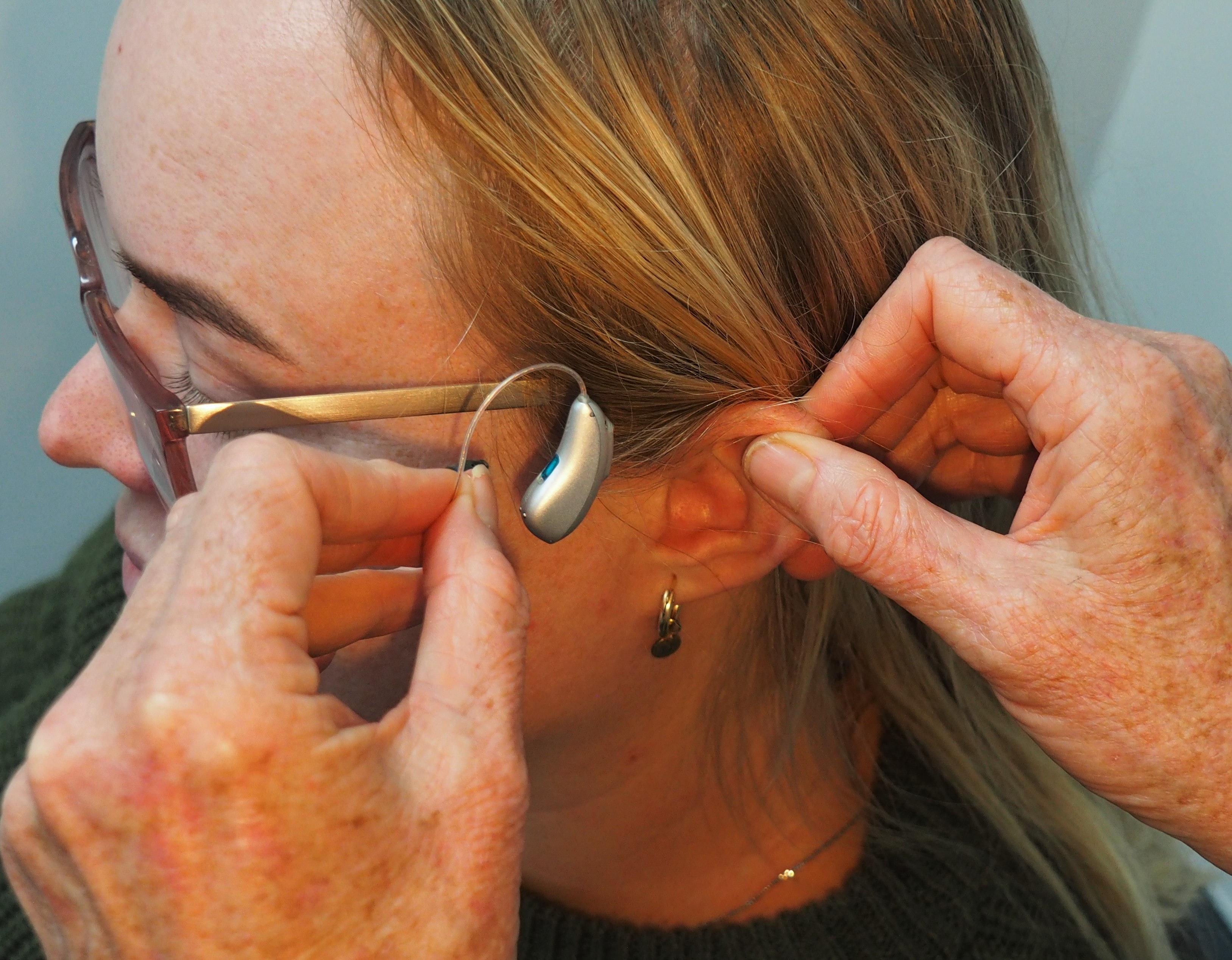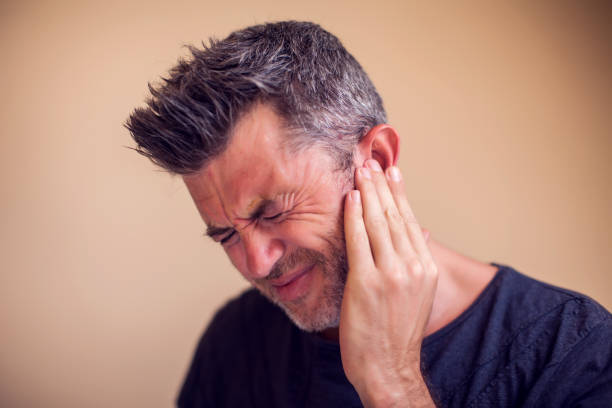What Is Audiology & What Do Audiologists Do?

The Basics Of Audiology
It’s easy to take them for granted when they’re working fine, but impairment to one of your five senses can be debilitating. Most of us will be familiar with the process of assessing vision, with over 12.5 million eye tests carried out in England alone every year and as much as 59% of our population wearing eyeglasses, but knowledge about the healthcare support available for our other senses seems less prevalent.
We’re here to demystify audiology, the branch of healthcare that deals with the assessment of hearing, for you. Read on to learn everything you need to know about audiology, audiologists, and how they might be able to help you with your hearing issues.
What is audiology?
Audiology, a word which originates from the Latin ‘audire’ (to hear) and Greek ‘logia’ (study), is the branch of the healthcare system that deals with issues relating to hearing and balance. Combining modern technology with medical science, audiology aims to identify, assess, and provide solutions for a broad range of disorders and conditions, from tinnitus to natural hearing loss.
What is an audiologist?
Audiologists are the professionals who practice audiology. They are responsible for identifying, assessing, and helping people to manage hearing or balance conditions, and make full use of a broad range of assessment tools and technology.
Just as an optician diagnoses eye conditions and delivers expert advice and tangible solutions to rectify their effects, audiologists strive to deliver solutions that help people to regain or maintain their level of hearing. In some cases, this will be as simple as providing advice about how to make adaptations that can help to limit hearing loss, in others, it will involve fitting technology like hearing aids to make a difference.
Due to the complex nature of the role, audiologists are required to complete a 3-year degree in audiology that’s approved by the Health and Care Professions Council (HCPC) or an NHS Practitioner Training Programme in audiology, depending on whether they want to work privately or for the NHS.
What conditions do audiologists treat?
In the same way that there are many different conditions that can affect the eyes and require the support of an optician, such as short-sightedness, glaucoma, and cataracts, hearing issues come in many forms. Audiologists are generally trained to treat conditions including:
- Hearing loss – Long-term and sudden hearing loss, which may be caused by natural degradation or a specific condition.
- Ear infections – Ear infections that cause pain, dizziness, loss of balance, or hearing loss can all generally be diagnosed by audiologists.
- Impacted earwax – Earwax build-ups that are exacerbated by impacting (causing denser blockages) can cause partial hearing loss and ear damage.
- Tinnitus – Characterised by a persistent ringing noise in the ear, tinnitus has a range of potential causes.
- Balance disorders – The inner ear is responsible for our sense of balance and can be affected by ear problems causing conditions like vertigo.
What does an audiologist do?
Due to the variety of conditions and issues that can affect the ear, our sense of hearing, and our balance, audiologists take on a broad range of responsibilities. They can carry out a variety of tasks during an appointment, including:
Perform hearing tests
Most people who attend an appointment with an audiologist for the first time will likely begin with a hearing test, or audiogram. This type of diagnostic test is designed to identify the recipient’s level of hearing, using sounds at different frequencies and volumes to build an understanding of what can be heard and what can’t. The test usually involves listening out for sounds and raising your hand or pushing a button when you hear one. The result of an audiogram is a graph that shows which sounds you heard, and which you didn’t, indicating the frequency or volume-based shortcomings of your hearing.
Remove earwax
Some hearing issues can be caused by a simple build-up of wax in the ear canal, or more serious impacted wax build-ups that can in time cause damage to the eardrum. Audiologists can help to remove these blockages by using micro-suction or irrigation tools, providing a near-instant solution to minor hearing problems.
Fit hearing aids
In some cases, partial deafness or hearing loss are symptomatic of a more fundamental degradation in hearing. This can occur for a range of reasons, from natural degradation due to age to sudden hearing loss because of a health condition or environmental factor. Hearing aids are one of the most common solutions to more serious hearing issues like these, and audiologists are the ones who identify the need for one and fit the device itself. The process of fitting a hearing aid involves the audiologist tinkering with the settings to make sure it’s effective at improving hearing, and there will often be follow-up appointments to provide further optimisation.

Discuss products or medication
Beyond hearing aids, there are a range of other devices, products, and medications out there that can provide temporary or permanent solutions to some hearing issues. Audiologists, having assessed your condition, are best placed to make recommendations about which to pursue, whether it’s antibiotics to treat an ear infection or custom ear buds to protect the ears in loud environments.
Provide advice
Finally, audiologists can simply act as consultants and provide advice that is geared towards preventing hearing loss, maintaining current levels of hearing, or continuing to enjoy the same quality of life with impaired hearing.
Recent posts
- How Coaching Can Support ADHD: Exploring Options Beyond The NHS
- Understanding ADHD Assessments: What To Expect During Diagnosis
- What Are The 4 Stages of COPD?
- What is Musculoskeletal Physiotherapy?
- What Are The Most Important Health Screenings For Men?
- What Are the Most Important Health Screenings for Women?
- What are the Benefits of Vitamin B12 Injections?
- Can A Chiropractor Help With Sciatica?
- Unlocking the Truth About Private Healthcare
- Is my portion size correct?


